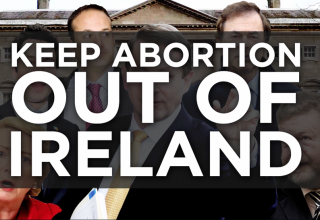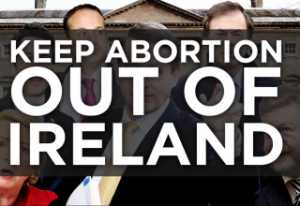Analysis Written by Father John Flynn:
**
Abortion advocates frequently portray themselves as altruistic defenders of women’s rights and dignity. The reality of the abortion industry is much more sordid, as revealed in a recent book detailing the experiences of former abortion clinic workers.
Abby Johnson, a former clinic director for Planned Parenthood in Texas has with the help of pro-lifer Kristan Detrow collected the inside stories of many individuals who saw first-hand how women’s needs were too often put behind corporate priorities and profits.
Johnson, Planned Parenthood’s Employee of the Year for 2008, previously related her rejection of abortion and embrace of the pro-life movement in her book “Unplanned.” Now, in “The Walls Are Talking: Former Abortion Clinic Workers Tell Their Stories,” (Ignatius Press), she has revealed some of the harrowing experiences of those directly involved in abortion.
The book takes its title as an answer to the 1996 TV movie “If These Walls Could Talk,” which Abby described as “propaganda at its finest” in its advocacy for abortion rights.
In her introduction to the testimonies Abby described how she continues to “continually grapple with guilt, shame, and the heaviness of regret,” regarding her previous involvement with helping provide abortions.
Abby also admitted to having had two abortions herself. In fact, one of the book’s testimonies said that around 70% of Planned Parenthood employees had experienced an abortion.
As a result she declared her desire to inform people about the darker side of abortion clinics. “I want them to know the truth about what it does to men, women, and babies. That is the heart and soul of this book,” Abby declared.
With the help of this book: “I pray that babies will be saved, women will be deterred from making such a hopeless choice, and men will encourage and support their partners to choose life,” Abby said.
Ideals betrayed
A familiar theme in the testimonies, which are anonymous to protect those involved, is the hardening of the heart that affects those who work first-hand in ending the lives of unborn children.
Most of those working in the abortion industry – explained one ex-worker – came out of a desire to serve women. As time progressed, however, the experience of working for an organization that makes money out of ending lives meant that their hearts grew calluses.
As a result, “it is commonplace for some clinic workers to ignore, marginalize, blame, and ridicule the women who trust them – especially those who become confrontational when dissatisfied with services rendered by the clinic.”
“I believe that those who work in the abortion industry are affected by a phenomenon I can only describe as the dulling of the conscience,” declared another former clinic worker.
“Abortion clinic workers have experienced evil in a very tangible way,” was the way one ex-worker described it.
Another common theme in the testimonies is the lack of adequate information provided to clients about the risks or possible complications of abortion. One former employee described her own harrowing experience with a chemically-induced abortion and her subsequent realization that women were not properly informed because the clinics are afraid the women will be scared off having an abortion.
“Every woman who walks out of the clinic and chooses life for her child equates to lost revenue,” she declared.
A further testimony recounted how those in charge of a clinic refused to call an ambulance to take a badly bleeding sixteen-year-old to hospital for fear of bad publicity. The fact she came close to death was concealed from her waiting father and from the girl herself.
This lack of interest in the well-being of the clients was poignantly expressed in one of the stories that described the reaction of the clinic worker to a late-term abortion on a woman. Despite her initial decision to ask for an abortion the woman later said she wanted to go to hospital to try and save the baby.
The doctor in charge pressured and even physically forced her to proceed with the abortion. This experience led the clinic worker to conclude that “Women in crisis who were unfortunate enough to run to us were far too often manipulated into executing their babies under the guise of choice and convenience.”
The lack of concern for women’s welfare came out in several of the testimonies that described how clinic workers would ignore the plight of those who were very probably in abusive situations. The cases ranged from a prostitute brought in for an abortion by her pimp to young women impregnated by a father.
Mercy and compassion
In a concluding note to the book Abby once more confessed to her feelings of guilt at having encouraged women to have abortions.
She also had advice for pro-lifers who she argued should avoid condemnation or harsh personal criticism of abortion clinic workers.
In addition to God’s grace it was the mercy and compassion of some people that led Abby to change. “It was not those who yelled and called me names,” she explained. Mercy and love are what those who are still involved in abortion need to hear, not hostility, she urged.
Abby finished with an appeal for prayer, both for those who contributed to the book and above all for those who have not converted yet. “We are waiting for them with our arms wide open,” she concluded.








